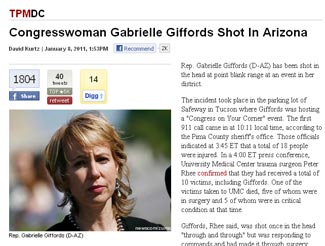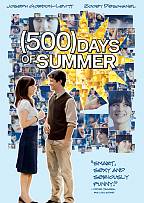
When the internet first rolled around, it was pretty open.
You had gopher, archie, veronica and – later – FTP. Get a picture? Get UUDecode.
Then came the web. AOL, Compuserve, Prodigy and so on.
In the beginning, one could only email a Prodigy account from, well, another Prodigy account. And so on.
The walls came down (relatively) quickly, but new walls quickly came up:
- Windows vs. Apple incompatibilities (let’s leave Linux out for now)…
- Netscape vs. IE incompatibilities (let’s leave Opera out for now, and treat Firefox as the successor to Netscape).
- Lotus 1-2-3 vs. Excel
- And so on…
Today, the walls have changed, but they still exist:
- Still harder to network a Mac than a Windows machine
- Different browser vendors have a different way of “implementing” the (unfinalized) HTML 5 spec
- Different eReader format specs – can’t read that Nook eBook on the Kindle and so on
- Smartphone apps that are different – and nontransferable – from one smartphone OS to another (got Angry Birds on your iPhone? Buy/download again for your Android phone)
The fragmentation into silos makes sense – it’s a point of differentiation (Apple: We’re more integrated; Android: We’re more open). And these are different technologies. Understood.
But – to the average consumer – it’s freakin’ impossible to understand. They don’t understand that, for example, if Amazon discontinues the Kindle, well, it might be a bad thing for them.
Silos are bad. Mebee…
Yet silos can be your friend.
Ten years ago people were horrified at the notion of Intel adding a unique ID to all of its processors. Today every phone has a unique ID, and yours is probably uploaded to apps’ servers multiple times a day. Not so long ago, people were outraged that Amazon could and did arbitrarily delete books from users’ Kindles; last week they clamored for Google to exercise essentially the same power.
— Jon Evans, The Walled Garden Has Won
He’s got a point. It’s part of the Facebook world, confirming Scott McNealy’s (in)famous quotation, “You have zero privacy anyway. Get over it.”
But there are silos of privacy (almost gone), and silos of data (can I easily port my Blogger.com account to WordPress.com?).
The latter is still very difficult – and I’m a web dork. And it’s my data, dammit!
There need to be basic standards that – for example (and not picking on anyone) – blog hosting sites adhere to. So you can easily export your data to a different blog hosting site. Sure, may lose some functionality (think about saving that MS Word doc as RTF – yep, some formatting will be lost….), but, for the most part, intact/possible.
Or you can export your pics from site X to site Y- yeah, may lose the thumbnails/friends, but OK…
That’ll be a good thing.
We’re not there yet, and – for the most part – it’s gotten worse over the last few years, as every new startup does things differently. So porting your (pics/data/spreadsheets/etc) gets messier and messier.
I expect things to get a little worse before they get better – but that means some innovation is occurring, so that’s not a really bad thing.
But it’s frustrating at times.
The average web user has a Yahoo! email account.
Yahoo!, is, unfortunately, dying. It’ll stay afloat due to its large installed base (hey, all those email accounts – how many of you have free excite.com email accounts [that you still use]?).
But – tomorrow – is that enough for Yahoo to say alive? If not, what happens to (a bazillion) yahoo.com email accounts? Including your account, that you use just for X or Y (water bill notifications; kid’s school stuff…)
Silos. Good…bad…hmm…

 Tonight – about five to six hours from now – the 2011 Academy Awards show will get underway; here’s my list of the winners and why.
Tonight – about five to six hours from now – the 2011 Academy Awards show will get underway; here’s my list of the winners and why. Social Network, The
Social Network, The
 I was in DC this summer, and it had changed in so many ways since I was last in the district (over 30 years ago, granted).
I was in DC this summer, and it had changed in so many ways since I was last in the district (over 30 years ago, granted).  Favorite book: This would have to be Kurt Vonnegut’s A Man Without a Country. This book came out in 2005, but I just became aware of it this year (
Favorite book: This would have to be Kurt Vonnegut’s A Man Without a Country. This book came out in 2005, but I just became aware of it this year ( Favorite musician: Regina Spektor. I saw the movie 500 Days of Summer (more on this later), and the movie had an amazing soundtrack, with a lot of artists I wasn’t familiar with. So I purchased the soundtrack, and two of the tracks – two of my favs – were by Regina Spektor. So I purchased a couple of her CDs, and they are amazing: Soviet Kitsch and Begin to Hope. These are older albums (2004 & 2006, respectively), but new to me.
Favorite musician: Regina Spektor. I saw the movie 500 Days of Summer (more on this later), and the movie had an amazing soundtrack, with a lot of artists I wasn’t familiar with. So I purchased the soundtrack, and two of the tracks – two of my favs – were by Regina Spektor. So I purchased a couple of her CDs, and they are amazing: Soviet Kitsch and Begin to Hope. These are older albums (2004 & 2006, respectively), but new to me.
 Favorite movie: Saw a lot of good films this year – all on DVD and not necessarily from this year – but the one that stands out is 500 Days of Summer. Quirky, non-linear, great mix of film and illustration, awesome soundtrack (see above).
Favorite movie: Saw a lot of good films this year – all on DVD and not necessarily from this year – but the one that stands out is 500 Days of Summer. Quirky, non-linear, great mix of film and illustration, awesome soundtrack (see above).
 Run Lola Run
Run Lola Run
 In a death of a thousand cuts,
In a death of a thousand cuts,  Update 12/18/2010 When TechCrunch is saturated with news of your decline (image, right), that’s telling:
Update 12/18/2010 When TechCrunch is saturated with news of your decline (image, right), that’s telling: I’m still not sure about the
I’m still not sure about the